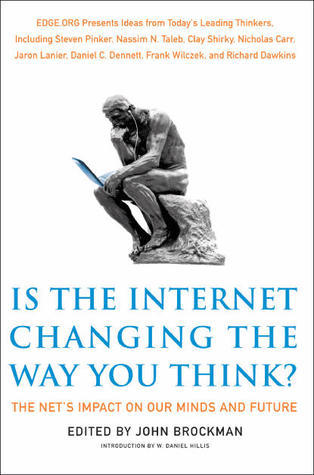What do you think?
Rate this book


448 pages, Paperback
First published January 1, 2011
Nowadays I mostly think only on the Internet. My thinking is divided into on the Net and off the Net. If I'm not on the Net, I don't think much; when I'm on the Net, I start to think. In this way, my thinking becomes part of something else.